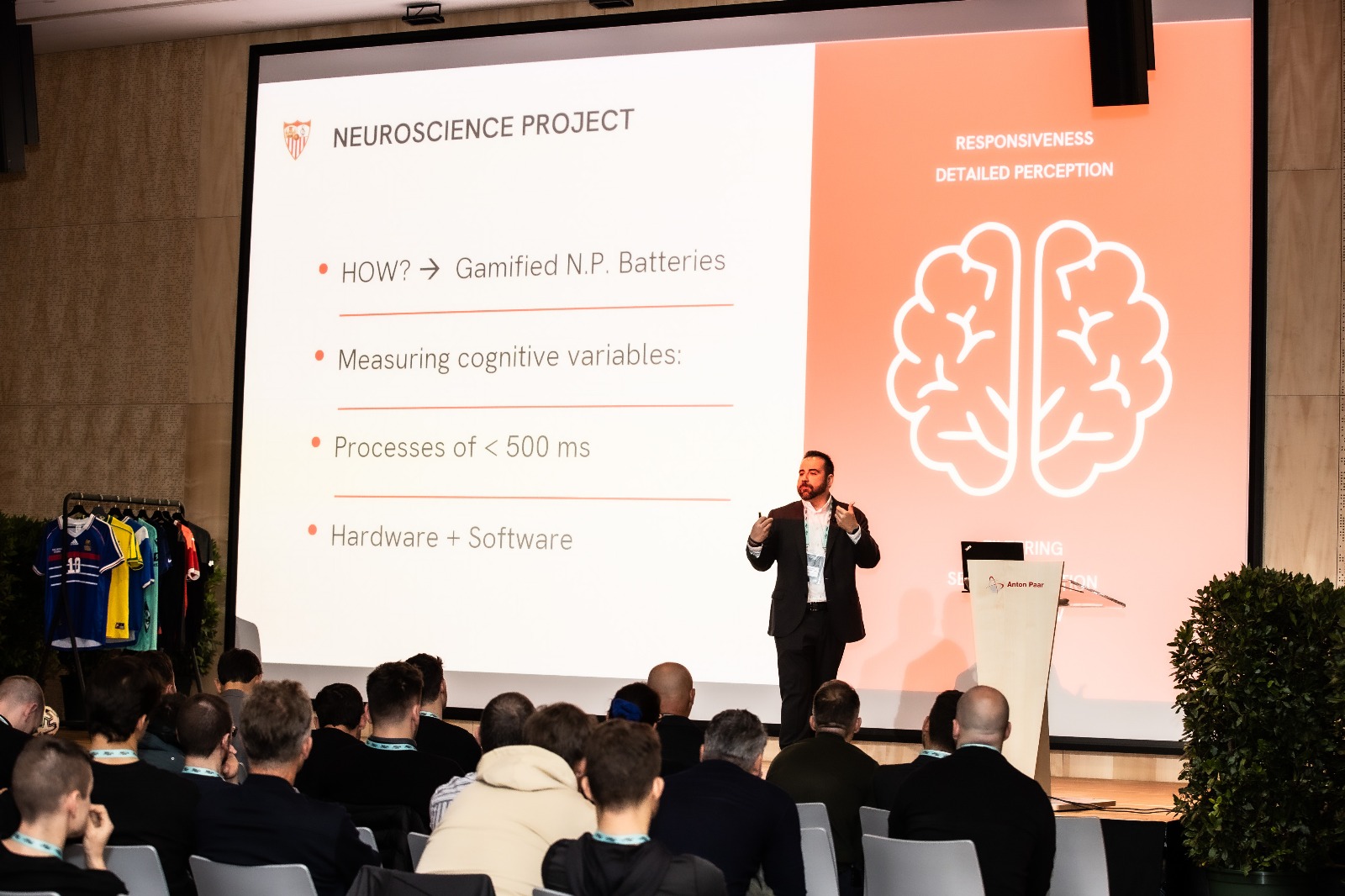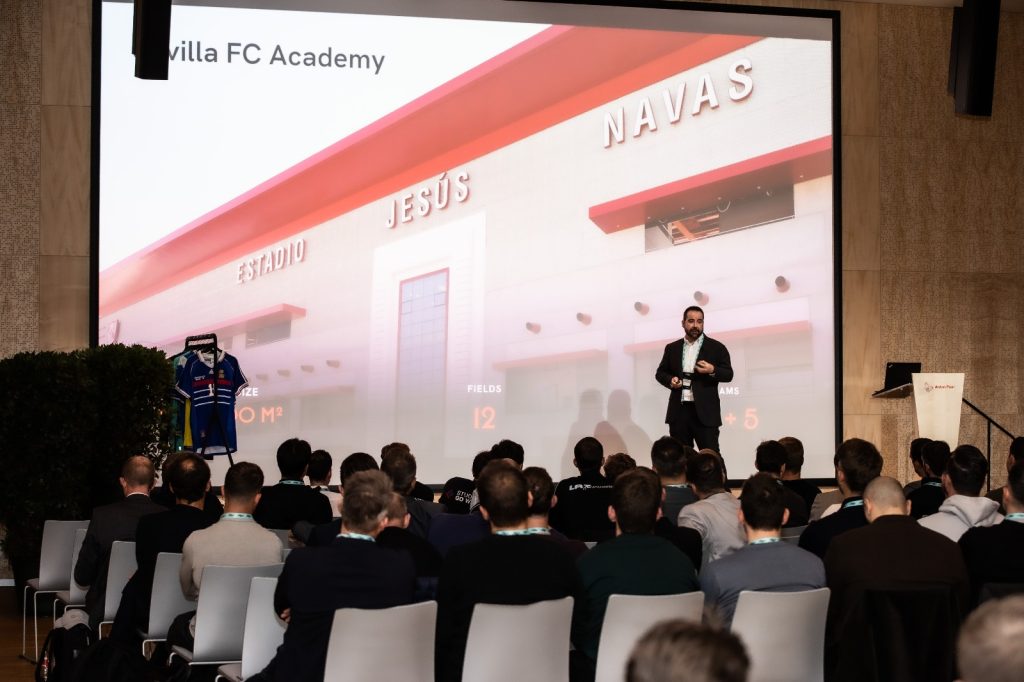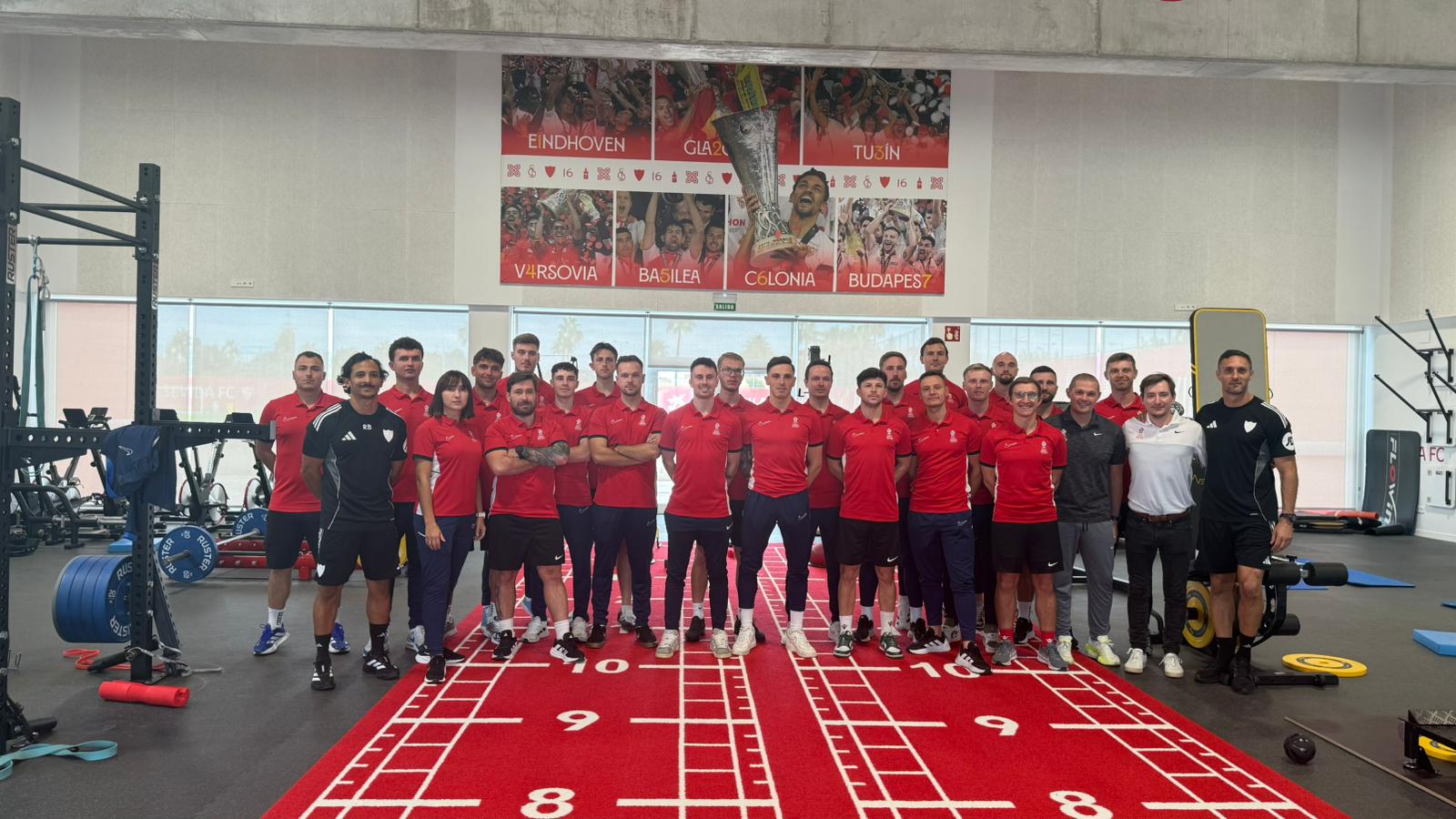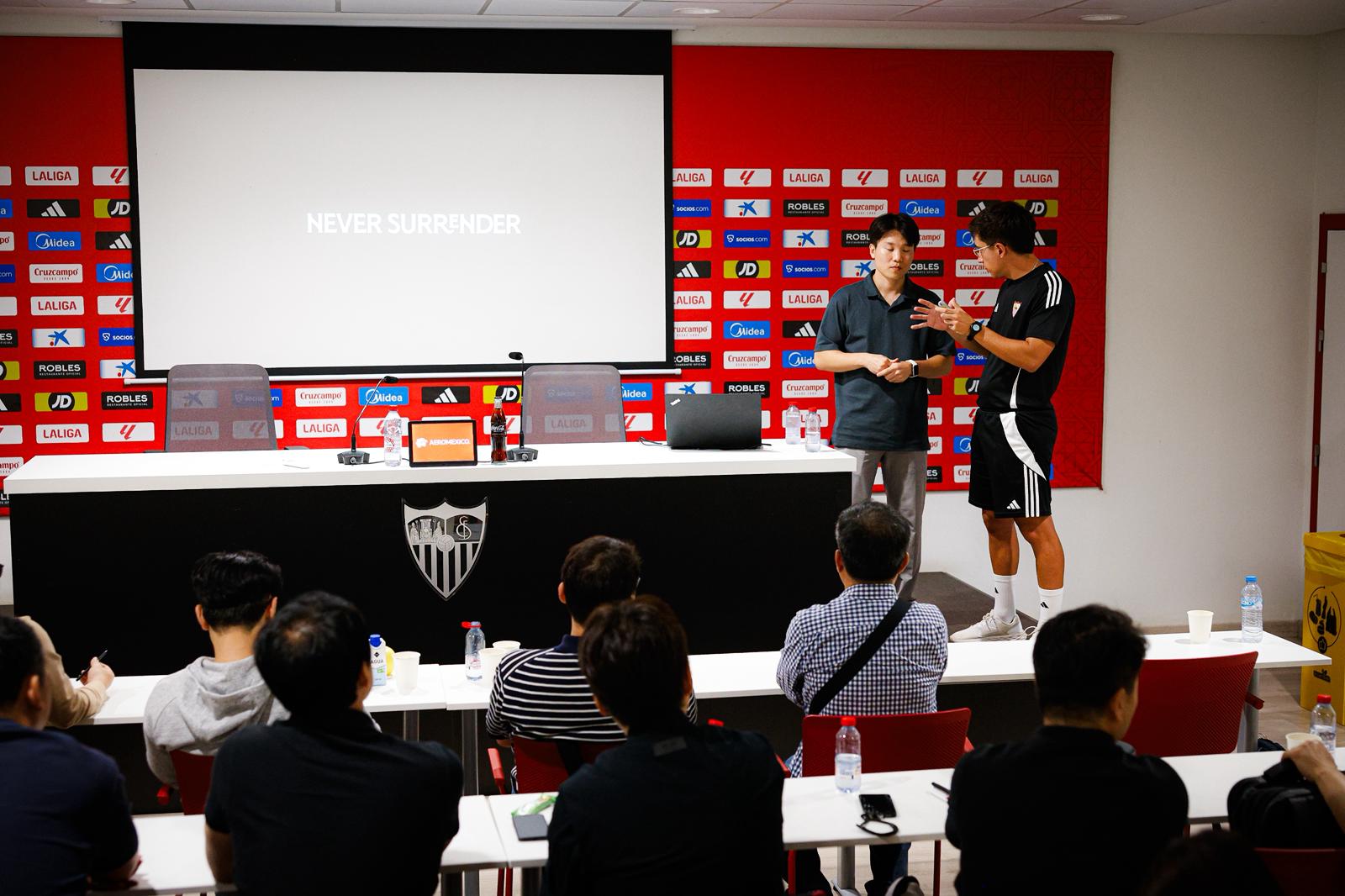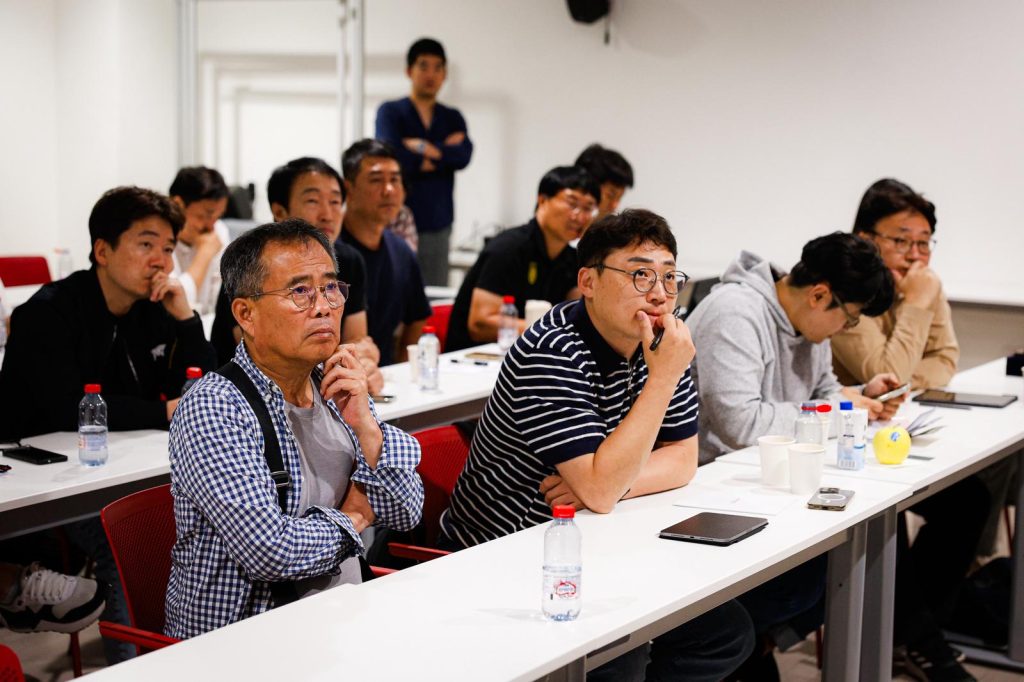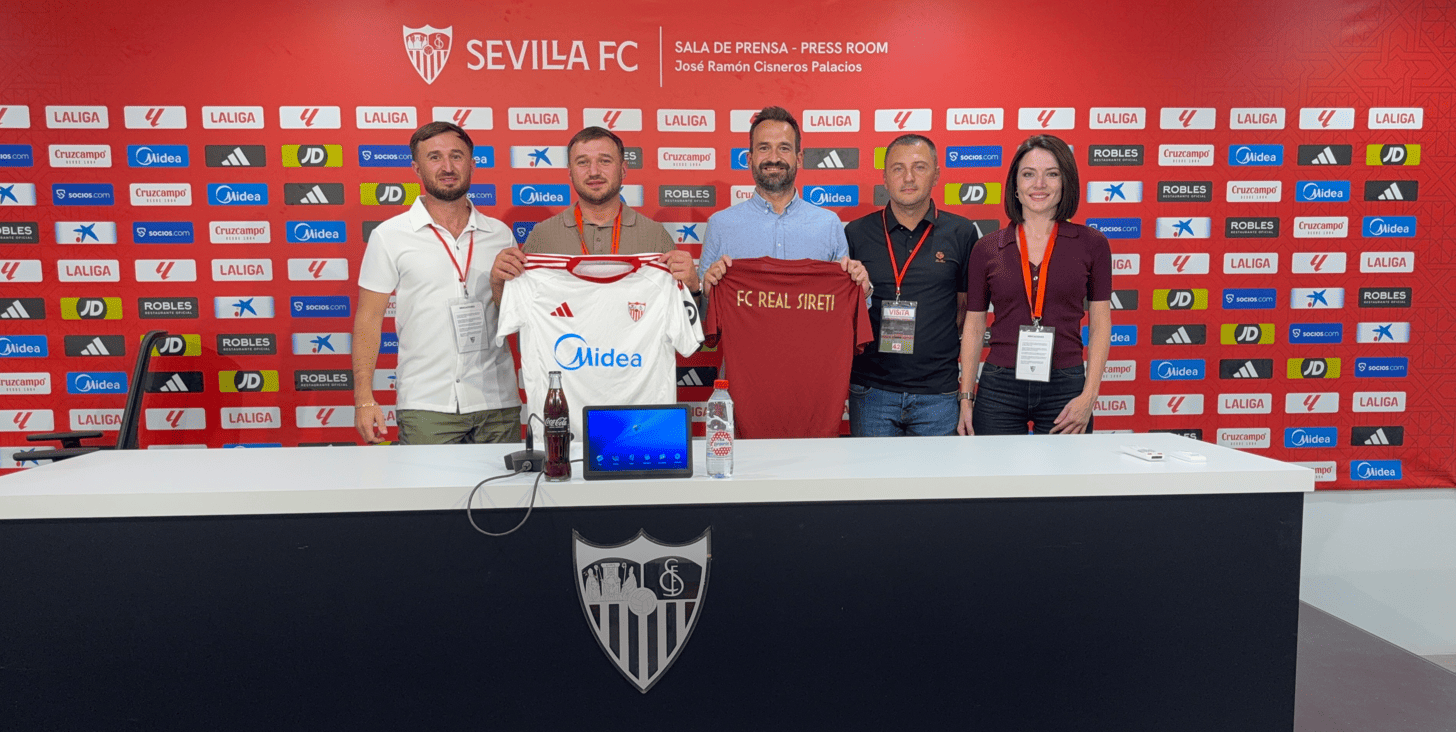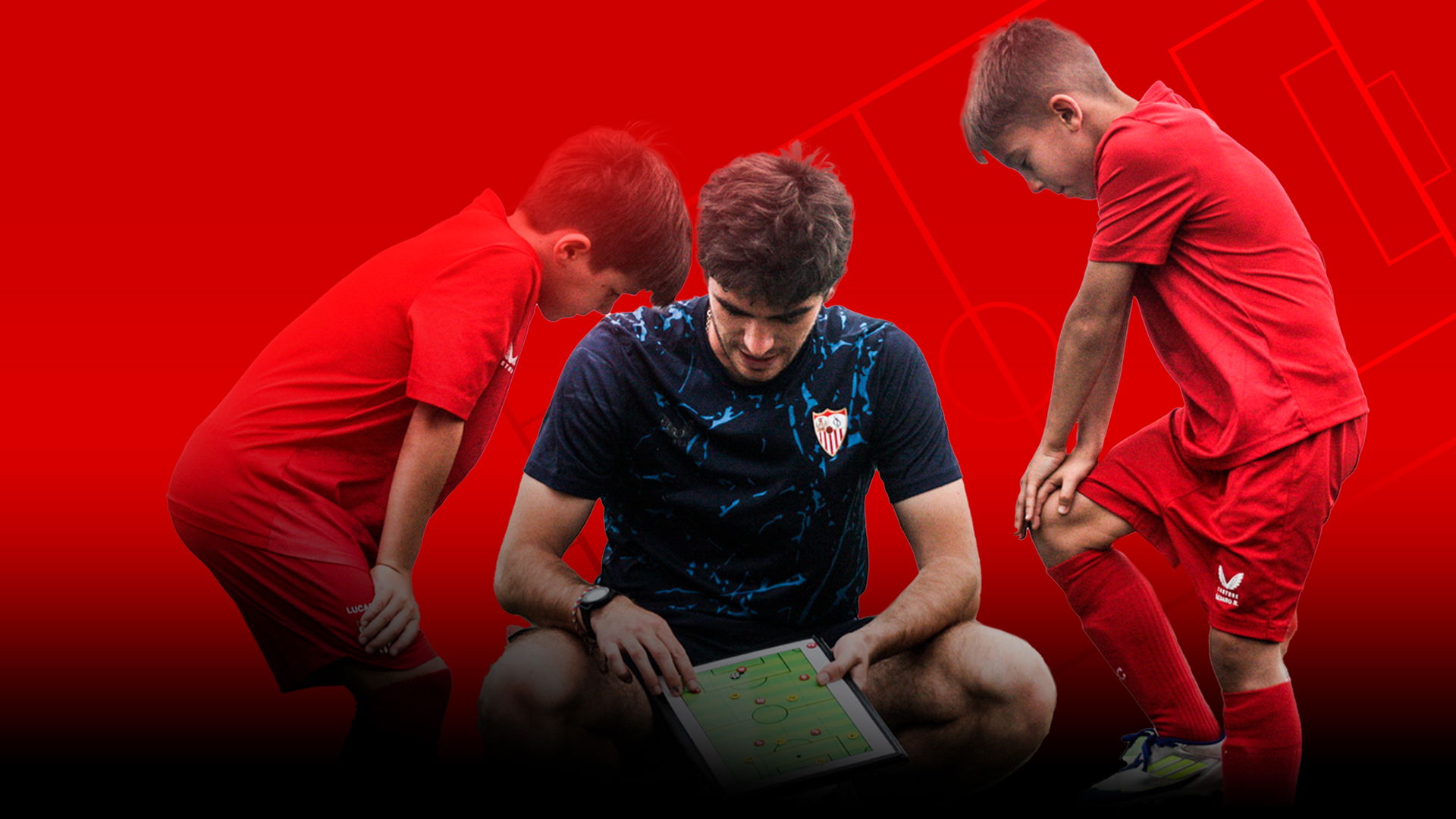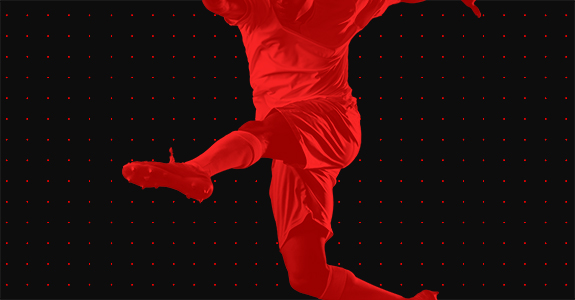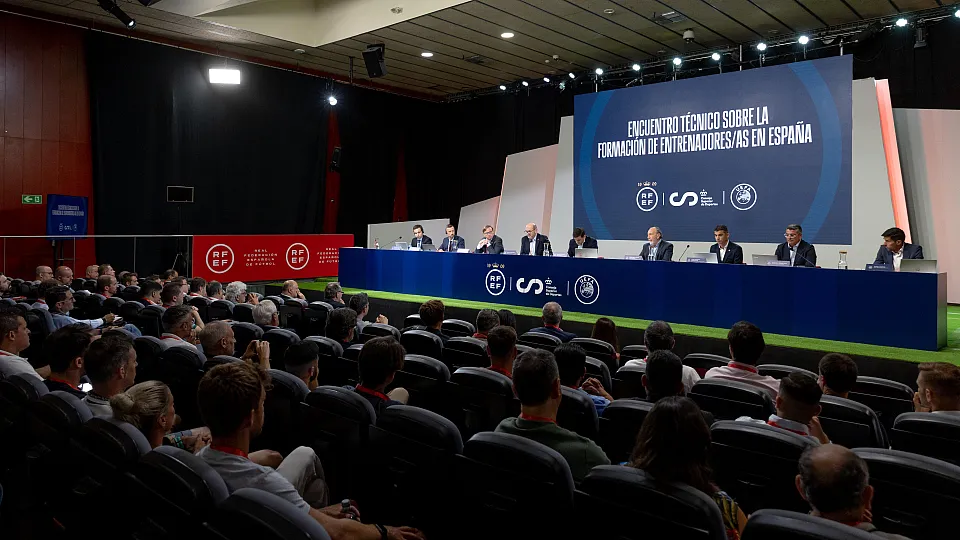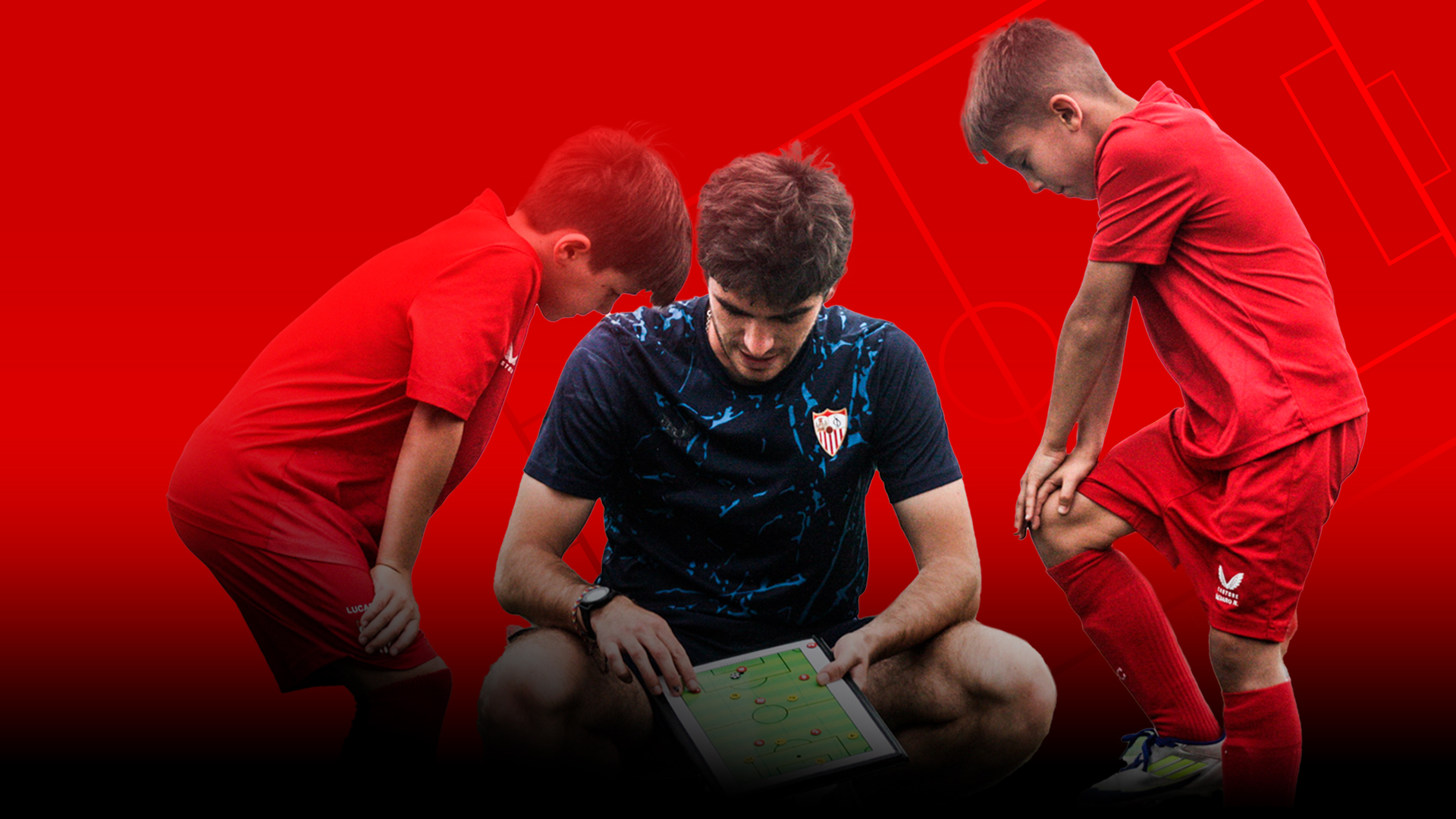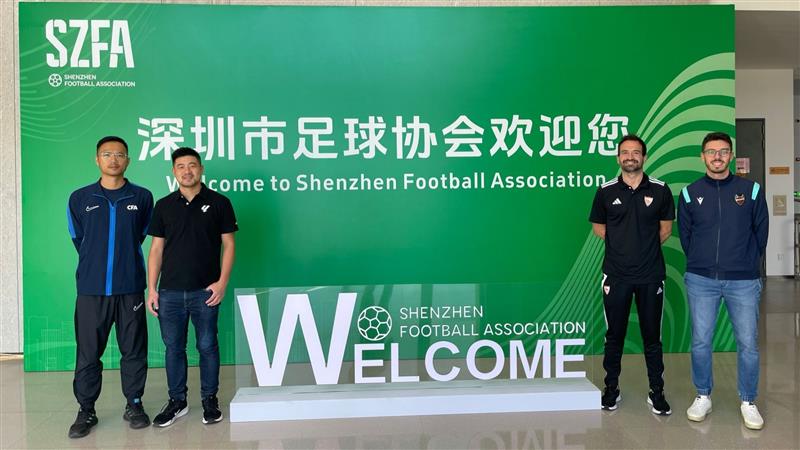
Sevilla FC continues to share its expertise within the football industry as part of its internationalization strategy and, this November, took part in a series of coaching and development sessions organized together with the Shenzhen Football Federation in China, an event that also included the participation of LALIGA and Levante UD.
José Collado, the club’s Head of International Sports Projects, represented the entity in a seminar aimed at coaches and officials of the regional federation, where he presented Sevilla FC’s player development model for both the men’s and women’s pathways.
During the visit, the club also had the chance to gain first-hand insight into the structure and reality of youth football in China by attending several training sessions and academy matches across different age groups. This experience has provided valuable learning within the internationalization process the club is currently undertaking.
“For Sevilla FC, our time in Shenzhen has been extremely enriching, as we were able to witness the enthusiasm and potential of Chinese football. We would like to thank LALIGA and the local government for the opportunity to deliver this seminar and to learn first-hand about the work being done in grassroots football across the country. Our visit reaffirms Sevilla FC’s commitment to fostering opportunities for development and learning for young players and coaches, as well as to sharing our knowledge,” said José Collado, the club’s Head of International Projects.
